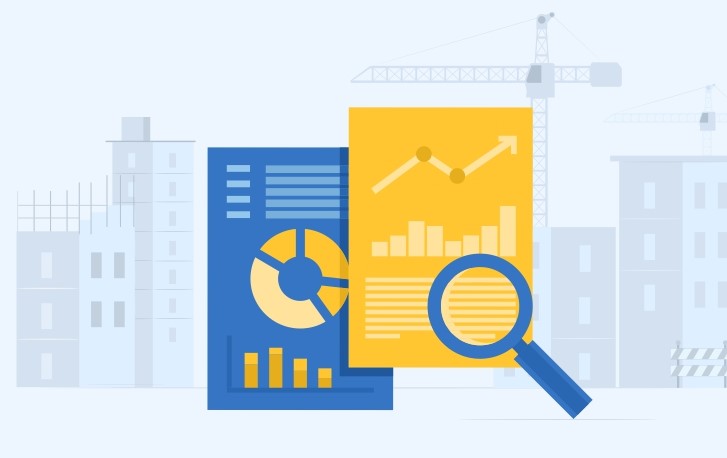Project Accounting Fundamentals | Top Trends and Tools for 2024
In the bustling world of business, project accounting has emerged as a game-changer. It’s a specialized branch of accounting that’s more than just crunching numbers—it’s about gaining insights and driving decisions.
Whether you’re a seasoned professional or a novice dipping your toes into the realm of finance, understanding project accounting is essential. It’s a dynamic field that’s constantly evolving, so there’s always something new to learn.
What Is Project Accounting?

Given the dynamic and continuously evolving nature of projectaccounting, it becomes increasingly important to attain a comprehensive understanding of it. With a strong knowledge foundation, professionals can aptly apply it to their roles and, in turn, improve their own performance and that of their companies.
The Basics of Project Accounting
Project Accounting, at its core, is a specialization within the field of accounting that directly aligns with specific projects. Unlike traditional accounting that looks at the financial health of an entire company, projectaccounting focuses on the financial details related to individual projects within that company. For instance, a company’s financial department might be focused on profit and loss on a large scale, while a project accountant concentrates on the budget of a specific project, its expenses, overall profitability, and other project report financial aspects.
The Importance of Project Accounting in Business
ProjectAccounting plays a pivotal role within businesses. As it provides a microscopic view of individual projects, it enables better monitoring, management, and financial control of those projects. It helps maintain fiscal responsibility while ensuring budgets are adhered to, and resources are not over-utilized. For example, consider a construction company embarking on a multimillion-dollar project. A project accountant would be invaluable in evaluating costs at different phases, staying on budget, and ultimately ensuring the project’s financial success.
Components of Project Accounting

Diving into the specifics, three primary components form the backbone of project accounting: Project Budgeting and Forecasting, Project Cost Tracking, and Revenue Recognition for Projects. Each of these components plays a unique role in ensuring the efficiency and effectiveness of projectaccounting.
Project Budgeting and Forecasting
Firstly, Project Budgeting and Forecasting stands as a crucial element in project accounting. It’s an initial stage typically involving the estimation of costs, revenues, and resources necessary for a project. It lays the foundation for planning software and analysis. For instance, a comprehensive budget is created before the commencement of a project, taking into consideration all expected costs and potential revenues. This provides an informed projection, enabling project managers to make sound strategic decisions geared towards achieving successful project outcomes.
Project Cost Tracking
Secondly, we have Project Cost Tracking, a meticulously maintained process that continuously monitors and records all costs associated with a project. For example, expenses related to labour, materials, and overhead are tracked and recorded on an ongoing basis. The aim of this component is to provide real-time updates on project expenditures. It fosters a comprehensive view of where funds are channeled, allowing for accurate cost control and optimal resource utilization.
Revenue Recognition for Projects
Lastly, Revenue Recognition for Projects is an essential aspect of project accounting. It pertains to the calculation, recording, and reporting of revenue generated from a project. This component strictly adheres to stringent accounting standards, such as ASC 606, which governs how revenue from contracts should be recognized. For instance, revenue is typically recognized when it’s probable that a significant reversal won’t occur and is realized or realizable. Through this process, project accounting provides a precise understanding of a project’s profitability, driving informed financial decision-making.
Tools and Software for Project Accounting

Following our in-depth examination of project accounting concepts, it’s time to explore various tools that can become significant assets in managing a company’s project-based finances. Below we’ll discuss critical features to consider when evaluating projectaccounting software, along with the benefits procured from their integration.
Features to Look for in Project Accounting Software
When choosing project accounting software, it’s crucial to consider some key features.
- Customization: Whether it’s managing cash flow projections or handling task assignments, the right tool allows adjustment and customization for individual project needs.
- Integration: The software of choice must integrate seamlessly with existing tools. This feature allows unified data across multiple platforms such as expense tracking software, for instance.
- Scalability: As a business grows and evolves, so too does its financial dimension. A project accounting tool must exhibit the ability to scale with respect to project complexity and size.
- Real-Time Reporting: For maintaining a tight grip on finances, real-time reporting is indispensable. For example, an automatic generation of reports detailing profit and loss statements becomes critical in a progressive business environment.
- User-Friendly Interface: Since project accounting concepts can come off as intricate, a tool with an intuitive and user-friendly interface simplifies the process significantly.
Benefits of Integrating Project Accounting Tools
The introduction of projectaccounting tools in the business ecosystem accrues several advantages.
- Effective Cost Management: Accounting tools offer precise tracking of project costs, hence setting the stage for effective financial management.
- Risk Mitigation: These tools uncover financial loopholes and risky patterns, providing an opportunity for preventive measures.
- Enhanced Financial Visibility: Accounting tools illuminate the financial path of each project with in-depth insights on costs, revenues, and profit margins.
- Efficient Resource Allocation: With a bird’s eye view of project finances, optimal resource allocation becomes achievable, prompting a rise in overall efficiency.
- Improved Financial Decision-Making: Accurate project accounting information acts as the backbone for sound financial decisions, enhancing overall business growth.
By tapping into these benefits and harnessing the full potential of project accounting tools, a business not only ensures financial management at a micro-level for its projects but also drives macro-level business success.
Challenges in Project Accounting

Project accounting, as beneficial as it is, does not come without its own unique obstacles and challenges. In this section, I’ll delve into some common hurdles and how best to address them, and also put forward some best practices that you might find handy in managing projectaccounting effectively.
Addressing Common Obstacles
The first common hurdle in project accounting lies in maintaining accuracy, especially with manual data entries. Double entries, missing entries, and inaccurate data can lead to significant errors in financial reports. Implementation of automated accounting software aids in minimizing these errors, by eliminates manual entries and thereby improving accuracy.
Another common obstacle is in coordinating financial processes between different departments. Miscommunication or a lack of cohesion can have severe implications for a project’s budget and deadlines. Implementing a central finance hub or a common platform can enhance inter-departmental communication, and ensure all teams are on the same wavelength.
Lastly, project accountants often struggle with time management. The individual monitoring of multiple projects and respective financial details consumes significant time. Application of time management techniques, such as prioritizing tasks, delegating responsibilities, and employing project accounting software can assist in alleviating this challenge.
Best Practices for Effective Project Accounting
Effective projectaccounting requires the application of strategic best practices. My top recommendation is the consistent use of accounting software designed for project management. This provides real-time, succinct financial data that can aid in making informed decisions and facilitate efficient project management.
Secondly, regular refurbishment of project estimates is critical. As circumstances and variables change, project estimates must be updated accordingly to maintain financial accuracy.
Third, I urge creation of transparent communication lines between project teams and the finance department. This aids in quicker resolution of financial issues, fosters collaboration, and ensures the team is aligned with finance.
Lastly, developing and adhering to strict budget management processes is necessary. This includes stringent tracking and managing project expenses, and taking corrective action where necessary to prevent financial drains.
With the right tools, strategies, and dedication, these challenges in project accounting can not only be addressed but also turned into opportunities for streamlining operations.
Project Accounting in Different Industries

Project accounting isn’t a one-size-fits-all model, but a flexible accounting tool that adapts to diverse industries’ financial needs. The application varies for each industry, considering their specific project requirements, financial control, and accuracy desiderata.
Construction and Engineering
Construction and engineering projects present unique challenges requiring custom flexible project accounting solutions. These projects are often long-term, requiring belief in maximum finance control and accuracy across all stages. Regular adjustments become a necessity as estimates often transform into actual costs over time.
For instance, a construction project might begin with a budget based on preliminary estimates. As the project progresses, these estimates may undergo changes influenced by fluctuating materials prices, contract variations, changes in labor costs, or unforeseen contingencies. In this context, project accounting aids contractors and engineers in tracking these changes, providing up-to-date financial information pivotal for informed decision-making.
Evidently, project accounting software becomes essential for construction and engineering entities, empowering financial clarity, real-time cost tracking, and financial forecast accuracy. It provides a transparent, accurate view of project financial health, aiding in timely corrective actions if costs escalate beyond the budgeted constraints.
IT and Software Development
The IT and software development sector, characterized by fast-paced projects with tangible and intangible costs, necessitates dynamic project accounting practices. Be it a complex enterprise software development project or an agile start-up application creation, projectaccounting provides an eagle-eye view of the project’s financial landscape.
Typically, a software development project incurs costs related to hardware, software, labor, testing, and sometimes, intangible costs like software depreciation. These projects also have predefined budgets, requirements, and timeframes, with possible changes disrupting the project dynamics.
For instance, a sudden change in the software requirement could cause a rise in the project cost and timeline extension. An accurate account of these changes, provided by project accounting, can facilitate quick financial adjustments, ensuring the project proceeds without financial hiccups.
Furthermore, project accounting software serves as a comprehensive solution for the IT and software development industry, facilitating detailed financial tracking, project budget vs actual cost analysis, and transparent financial communication across departments. This contributes significantly to efficient project management, financial predictability, and successful project delivery.
The Future of Project Accounting

Looking ahead, it’s clear that changes are on the horizon for project accounting. Emerging trends and innovations are poised to reshape this field, and the advent of automation and Artificial Intelligence (AI) is promising to bring fundamental changes.
Trends and Innovations
Moving forward, trends in project accounting are evolving towards more streamlined and intuitive solutions. An increasing reliance on Cloud-based platforms, for example, offers businesses real-time access to their project’s financial statements from virtually anywhere. Cloud-based project accounting software incorporates features of scalability, mobility, and data security, echoing today’s remote work environment.
Integrated project management, another emerging trend, represents a shift towards a holistic approach to project accounting. With integrated project management, teams can seamlessly track project cost, time, and resources, therefore enabling more efficient and accurate decision-making. This approach also fosters inter-departmental collaboration, minimizing the risk of miscommunication and discrepancies in the project progress.
The Impact of Automation and AI
Automation and AI, meanwhile, are redefining the boundaries of project accounting. Automation minimizes the need for manual data entry, reducing errors, and saving valuable time. Automated invoicing, expense tracking, and reconciliation serves to streamline the overall work plan, enhancing operational readiness efficiency.
On the other hand, AI brings the potential for predictive analytics. With the help of machine learning algorithms, AI can predict future trends, enabling better resource allocation and financial planning. Furthermore, AI-powered chatbots can answer project-related financial queries in real time, promoting transparency and accessibility in project accounting.
In essence, the future of projectaccounting lies in adopting these technological innovations, advancing towards a more efficient and nuanced landscape of financial management within projects. As AI and automation continue to penetrate the market, traditional project accounting practices will inevitably be reshaped.
Conclusion
I’ve seen firsthand how project accounting has reshaped the landscape of various industries. It’s become an indispensable tool for project management, offering detailed financial insights that drive efficiency and success. As we look towards the future, it’s clear that the integration of cloud-based platforms, automation, and AI will continue to revolutionize this field. These technological advancements aren’t just streamlining processes – they’re enhancing decision-making and providing predictive analytics for smarter resource allocation and financial planning. It’s an exciting time for project accounting with these innovations leading the way. As we embrace this technologically advanced approach, we’re set to unlock even greater potential within project management and beyond.
Frequently Asked Questions
Q1. What is project accounting?
Project Accounting is an accounting methodology that helps gain precise financial insights for individual projects within various sectors like Construction, Engineering, IT, etc.
Q2. Why are project accounting tools and software important?
These tools and software are vital for efficient project management. They streamline processes, accurately track expenses, revenues and facilitate informed decision-making.
Q3. What is the future of project accounting?
The future of project accounting lies in modern technologies such as cloud-based platforms, integrated project management, automation, and AI. These advancements enhance decision-making and offer predictive analytics for better resource allocation.
Q4. How does AI contribute to project accounting?
AI in project accounting aids in process automation, thus reducing manual labor, minimizing errors, and providing accurate predictive analysis for improved resource allocation and financial planning.
Q5. How is the landscape of project accounting evolving?
The landscape is evolving towards a more technologically advanced approach, with AI and automation playing pivotal roles. The aim is to streamline processes, enhance decision-making, and offer predictive analytics for efficient financial planning. As technology advances, we can expect more changes and improvements.

Leave a Reply